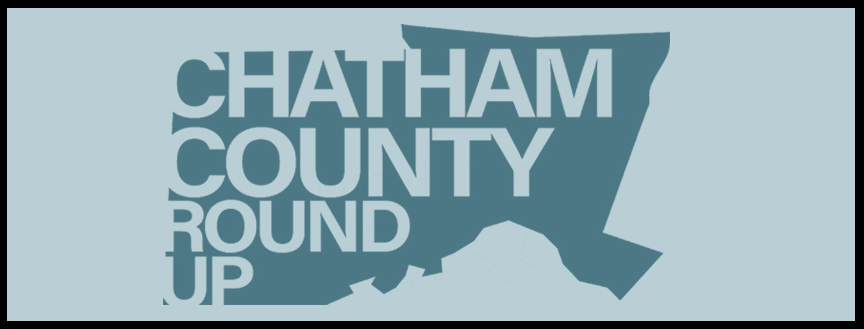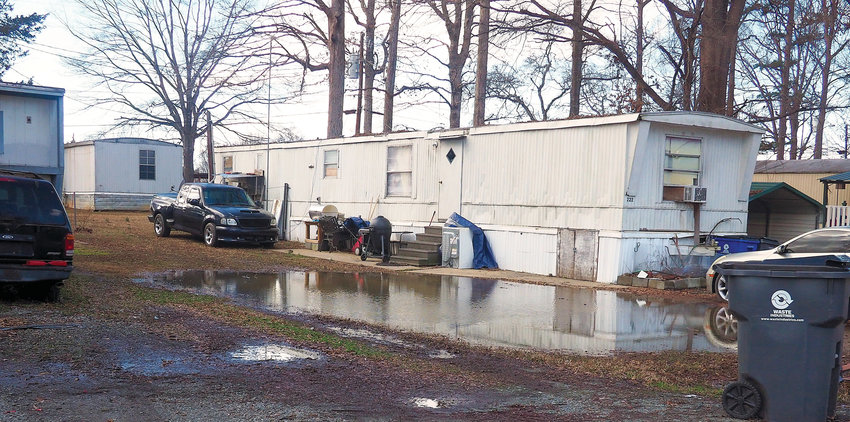Chair of the Chatham County Commissioners Karen Howard joined 97.9 The Hill’s Andrew Stuckey on Tuesday, September 20th for the latest Chatham County Roundup. This time, Howard discussed the county’s plans for Opioid settlement money, the new tiny home village being built, and more. Below is a transcript of the conversation edited for clarity. You can listen to the full conversation here.
Andrew Stuckey: Thank you so much for joining us. We have got a lot going on as usual in Chatham county, but I would like to start with having you tell me what happened at last night’s commissioner’s meeting.
Karen Howard: So I think for me, the highlight of the meeting really was some of the updates we got. We got an update from the Sheriff’s task force on talking about Opioid Settlement Fund spending, which has been a big focus for many of us in the county. We have had a spike in opioid deaths in Chatham County over the past two years whereas other communities have seen somewhat of a decline. Getting that money in place and developing a position that can help meet some of the needs of the community helps us understand the people that are most impacted and how we can best serve families and the community to ensure that people are getting the kind of help and support that they need before addiction happens. They have the resources and tools to overcome addiction and see that people do come out on the other end and lead happy, productive, fulfilling lives. We got an update on that and actually, a lot of the updates that we got in our earlier session of the board meeting were around mental health and wellness.
We also got an update on the tiny home village. The Farm at Penny Lane was going to be 15 permanently affordable, supportive units of housing that are a collaboration with XDS (Cross Disability Services), The Center for Excellence at UNC, a couple of local home builders, and some county investments where there will be veterans living who are suffering from PTSD. There will be people who have found themselves in mental health crises. People who have found themselves homeless because of mental health and lack of access to resources. The wonderful thing about The Farm at Penny Lane is there is actually a farm there. There are fresh farm-to-fork meals. There are therapeutic services available there. There is counseling available on-site. It is really building a community of support around some of our most vulnerable community members. That has been an exciting project. It is great to see that houses are being built, and that the community is coming together. Incredible financial support has gotten them where they are. They are expected to have 15 homes finished within the next few months and available for the applicants. People applied some time ago, but that is available for those people to take advantage of and live in a safe, secure space because you really cannot address mental health if people don’t have basic housing, food, and access to good healthcare.
The second part of our meeting was dominated by a lot of applications for zoning revisions. Most of it is triggered by some of the announcements that have come out. We know that the area around VinFast and Moncure is going to receive a lot of attention. We expect the same in Siler City, but several of the projects that we saw last night were directly in the vicinity of that VinFast Moncure Plant with some landowners looking at ways that they can perhaps take advantage of the opportunities that are coming to the region and maybe foresee some of the potentials for investment in their own land or for development of businesses. We anticipate that this is going to be happening a lot over the next couple of years. We are hopeful that the UDO (Unified Development Ordinance) and the small area plans that will be developed around Moncure will ensure that there is a quality of life that is preserved and that we are making thoughtful and wise decisions with the NCDOT and with the community members. I think it is a wonderful thing to have a mega-site. It is wonderful to be able to bring in additional businesses, and it is wonderful to be able to offer Chatham County residents jobs right here at home. But, we also have a responsibility to the environment. We are never going to un-develop anything that is already developed. I think the opportunity to do it right the first time, and perhaps learn from some of the experiences of communities around us is key. Chatham has long been a bedroom community of the triangle. I think that dynamic is beginning to shift and we have the opportunity to look at the communities around us. Some have done it well, and some have struggled. We can take lessons from that. We are going to continue to see more and more of these applications. It really is a reminder that finishing that unified development ordinance and developing those small area plans are going to be critical.
Stuckey: There is a lot to unpack from what you just talked about! So, I’m gonna backtrack a little bit here. Let’s talk about the opioid spending. How much has the county been allocated so far and have there been any actual decisions about what it is going to be used on so far?
Howard: I do not know what has actually come to the task force, but the way this money is being made out is that we are anticipating a total of, I think $2.7 million, and that will be expended across a couple of different agencies like the sheriff’s department, the juvenile courts, and some of the service providers, like Daymark. They also added a very strict set of guidelines about how that money can be used. This task force has judges there, the Sheriff’s department, and our public health director. They have determined that the highest and best use of those original funds is to hire a director who can specifically oversee the implementation of plans.
Our expectation is that there will be approximately $170,000 coming to the county every year for the next 18 years, but it won’t really be spread out that way. There will be a larger portion of the funds that come in those early years and smaller portions as we get close to the 18th year. Hiring a director to oversee the implementation of multiple plans is important. If someone is already involved in the justice system there will be funds available for treatment, harm reduction, and for therapy. Our family courts will be helping to ensure that families can stay together. We are working with communities around us that have housing options that allow a person who is addicted and convicted of an offense to have access to their children. They can continue to care for and raise their children while they get treatment for their addiction. There are a lot of different things that are going to happen, but hiring that director who will specifically oversee the implementation of all of the plans I think is really critical. That is what the first tranche of money is intended to do.
Stuckey: This is definitely an opportunity to make a pretty big difference on an issue that’s been plaguing parts of the country for decades, frankly. It is exciting to hear that this is going forward. I wanted to circle back also to the tiny home village conversation. I have to admit ignorance on this. I knew nothing about this until you just started talking about it. Is this one and the same as The Farm at Penny Lane? Is that where the tiny home village is?
Howard: Yes. That conversation has been happening for several years now. I think we broke ground a couple of years ago prior to COVID on the first tiny home which is finished and has been a model, but being able to build all of the tiny homes in that community has really just come to fruition where they have now raised sufficient funds to get that done with the help and support of Garman Homes who will be coordinating the building.
Stuckey: That is very exciting. I know that there are other communities across the nation that have had a lot of success with these tiny home villages. Just getting someone a permanent address can make such a huge difference in their ability to find services and work.
Howard: Absolutely. Thava Mahadevan is the face of XDS. He said something last night at the meeting that was critical. These homes might be tiny homes, but they are not tiny to these people. The impact on the people that will be housed because of the tiny homes is huge. These are small homes making a huge difference. Having a place to rest your head is so crucial to addressing mental health. If a person doesn’t have that basic thing, all of the energy that could be going into healing and wellness is going towards where am I gonna put my head tonight?
Stuckey: Do we know what the timeline is on folks actually getting to move in there?
Howard: My understanding is that there is one residence finished and there is someone in there. The remainder of the homes should be finished being built within the next four to five months, which is a really aggressive timeline. That is part of what the builder has been doing is coordinating all of the subcontractors and getting everything lined up so that they can just go in and build them. They are going to be just replicas of one another. Hopefully, the county can do its bit in terms of making sure that inspections happen on time and have these homes ready within the next several months. There is a group of people in mental health from across the country who are going to be coming to look at the model and see how this could be replicated in other communities. I think the sooner we can get it done, the sooner we can be an example of that.
Stuckey: We are already down to just a couple of minutes left here. I will turn it over to you if there is anything going on in the community that you want to highlight or anything that we have not talked about yet that you feel needs mentioning.
Howard: There is one thing I do want to highlight! This coming Saturday at 9 a.m. in downtown Pittsboro at the old agricultural building, there will be a dedication of a historical marker that is memorializing Chatham County lynching victims. It has been a collaboration with our local NAACP and the Equal Justice Initiative. It is a wonderful opportunity for our community to come together to understand our collective past and to recognize the families that were impacted by the violence of lynching. I am really looking forward to that permanent fixture in the center of town, just across the street from our courthouse.
Stuckey: What time is that dedication?
Howard: This Saturday at 9 a.m.
Stuckey: There is a chance I will see you there. It is always a pleasure, and I look forward to our next visit. We have been visiting with Karen Howard from the Chatham County Commissioners. Thank you so much.
Howard: Thank you, It’s always a pleasure.
Every Tuesday, learn what’s happening from around Chatham County during the Chatham County Roundup! Featuring local government representatives, the Chatham News + Record and other community members, the segment spotlights the latest news from around the region.
Chapelboro.com does not charge subscription fees, and you can directly support our efforts in local journalism here. Want more of what you see on Chapelboro? Let us bring free local news and community information to you by signing up for our biweekly newsletter.









Comments on Chapelboro are moderated according to our Community Guidelines